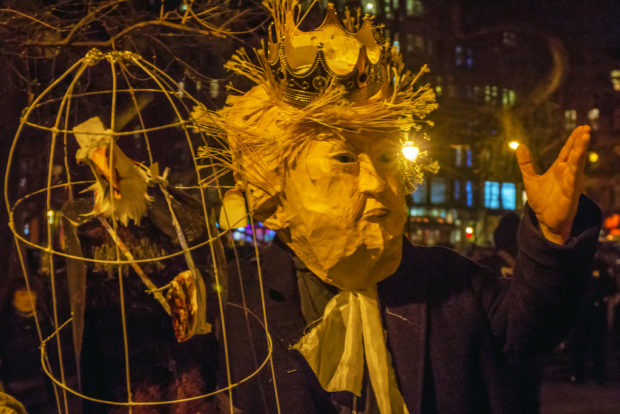2016, as said, was not a good year for democracy. This year could be worse. It may bring us a Le Pen French Presidency. It could grant power to malevolent far-right turnip Geert Wilders. Chancellor Merkel could be driven out of office as a thinly-veiled far right makes hay from the refugee crisis. All around us, the world roils. Far from putting a stop to Putin and his schemes, democracy has proven unable to resist his influence and his minions. Does this mean that democracy is dead? No, but as Frank Zappa might have said, right now it does smell funny. What it does instead is unveil a strange and unusual truth – that Democracy and Monarchy share the same problem. Put simply, both systems fall apart if the people in charge are idiots. In a Monarchy, of course, the person in charge is the Monarch. If they are competent, the system carries on and the country benefits. If, however, the Monarch is corrupt, incompetent or vile, the country suffers and the system fails. Often, the collapse is total. And yet, this is also the problem with democracies. The only difference is that instead of one person in charge, it is many – the electorate. If we have a wise, sane and well-informed electorate, the country does well. But if that electorate is corrupt, ignorant or vile, the country suffers and the system fails. Often, the collapse is total.
It may seem a stretch at this point to draw parallels between, say, Tsar Nicholas II or Louis XVI and the masses who put an idiot like Trump into power. But the comparison does in fact make a great deal of sense. The only difference is, voters have to be born at the right time and place in vast numbers, whereas a Monarch only needs to do this once. Kings also come to power through back-room manoeuvres and revolution. But electorates also regularly overthrow the old order, and, as gerrymandering and vote suppression show, the stitch-ups in a democracy are every bit as shameless as intrigue at court.
Sometimes it goes even further. The masses of angry mourners for Princess Diana in 1997 are a classic example. Not ones to grieve in a dignified manner, they took a very dim view of the Queen’s refusal to publicly mourn with them. After much arm twisting, she dutifully came out, gave the most inane eulogy ever and then came back in again. The public, having got its own way, shut up and all was well for the status quo. But far from threatening the concept of Monarchy, it strengthened it in the long run. After all, Diana was, by marriage, herself a royal. Her celebrity and mystique in the eyes of the public all stemmed directly from this. Monarchy was not threatened so much as made to remember that it had to follow the “popular” will. Nearly twenty years later, and the Queen is still on the throne, buoyed up by plenty of public support.
What this showed, of course, is that monarchy and democracy can go together very well. Indeed, the relationship is often symbiotic. Denmark, Norway, Sweden, the Netherlands, Japan, Spain, Britain itself… As far as monarchy goes, democracy does a great job of keeping it afloat. Regardless of rhetoric or dogma, you can learn a great deal about what a system really is by the company it keeps.
At the heart of both systems, of course, is a toxic mix of bull feathers and sentimentality. Kings and Queens are viewed in the most cloying and sycophantic ways, fawned over and seen as God’s appointed Monarch. If you don’t think this is the case nowadays, think of the 2011 marriage of Prince William and Kate Middleton. Or, when it finally happens, the Queen’s funeral. The humbug and starry-eyed mass adulation is just a royal birth away.





Very useful! Thank for sharing
You are amazing with this post. Thanks for posting such information
great, thank you for sharing information. i like your blog
Cieszę się, że brokatowe lakiery wróciły do łask. Uwielbiam je!